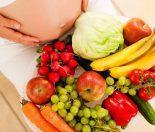Successful conception relies on such an intricate series of events, it is somewhat surprising that any of us are actually here at all!! There are so many factors that may be responsible for a delay in starting your family.
Each cycle the pituitary gland in the woman’s brain sends a signal to her ovaries to prepare an egg for ovulation. This gland produces two hormones: the follicle stimulating hormone (FSH) and the luteinising hormone (LH). A surge in LH sends a message to the ovarian follicle to release its egg – this is what is known as ovulation. A woman is at her most fertile at the time of ovulation. The exact time of ovulation varies from women to women.
After the egg is released into the follicle, it is then captured by a fallopian tube and is viable for about 24 hours for fertilisation. For pregnancy to occur, sperm must unite with the egg in the fallopian tube within this time frame. Sperm are capable of fertilising the egg for up to 7 days and must be present in the fallopian tube at the same time as the egg for fertilisation to occur. If fertilised, the egg moves into the uterus which can take about seven days where it attaches to the uterine lining and begins a nine month growth process.
There are two parts to a woman’s menstrual cycle: before ovulation (pre-ovulatory) and after ovulation (post ovulatory).
- Day 1 starts with the first day of a woman’s menstrual period.
- Usually by about Day 7, a woman’s eggs start to prepare to be fertilised by sperm.
- Approx Days 7 to 14, the lining of the womb starts to thicken, waiting for a fertilised egg to implant.
- Approx Days 11 – 20, hormones cause the egg that is ripe to be released (ovulation) and it travels down the fallopian tube toward the uterus. If the egg is fertilised it will travel to the uterus and pregnancy occurs. If the egg is not fertilised it will break apart.
- Around day 25, if fertilisation has not occurred, the hormones levels drop and the egg will be shed from the body with the lining of the uterus as a menstrual period.
The first part of a menstrual cycle is different in every woman and can also vary from month to month varying from 13 to 20 days long. This is the most important part of the cycle to learn about because this is when ovulation and pregnancy can occur, after ovulation every women (unless she has a specific health problem that affects her periods or is pregnant!) will have a period within twelve to sixteen days.
There are a number of methods that you can use to find out when you are ovulating, including charting your menstrual cycles, (for example, the Sympto-Thermal Method, which is the most accurate), using an ovulation kit or you may even experience ovulation pain (Mittelschmerz) to name but a few. However, it is important to note that everyone is different, and every cycle could potentially be different so if you want to know exactly when ovulation occurs for you whether you are planning a pregnancy or wish to avoid one, it is recommended that you chart your cycles and get to know your body and your fertility naturally.
Other useful Kiwi Families pages
Find out more about common causes of infertility
Or learn what you can do to investigate infertility
We also have some great information about treatments for infertility








Hi, me and my partner are trying for a baby. So far we have been unsuccessful. How do I know when I am ovulating?
Hi Nelly, this article might help: http://www.kiwifamilies.co.nz/articles/understanding-conception/ Good luck!